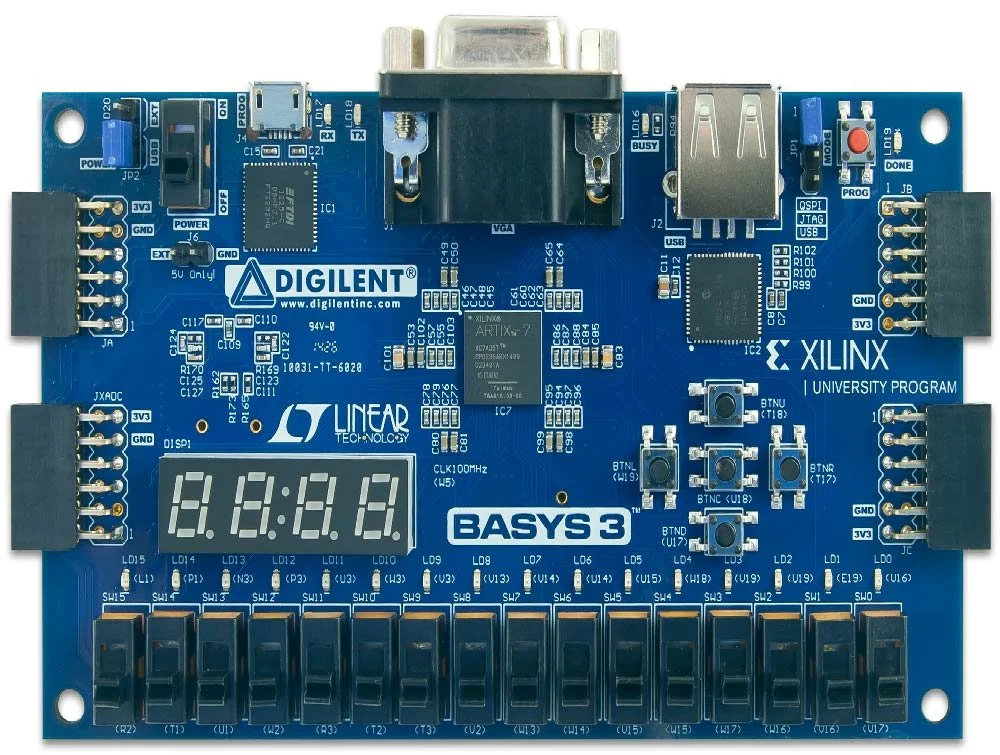University of Central Florida
Undergraduate Learning Assistant, Orlando, FL | January 2025 - May 2025
I am a student at the University of Central Florida in Orlando, where I am studying Electrical Engineering. During my time here, I’ve had the opportunity to serve as an Undergraduate Learning Assistant (ULA) for Digital Systems. At UCF, a ULA acts as an extended educational resource by holding office hours, answering additional questions, and addressing general concerns about the class. Being able to assist my classmates and continue pursuing my passion for mentoring has been a truly meaningful opportunity.
Key Highlights
Conducted 2 weekly office hour sessions for 120+ students, on topics such as Boolean algebra, logic gates, and multiplexers
Developed over 200 practice problems with 4 fellow ULAs to strengthen fundamental arithmetic skills and Karnaugh map
Engineered sequential circuits to show the impact of flip-flops, latches, and clocking mechanisms in digital systems
Tested digital logic circuits on BASYS-3 FPGA boards using Verilog HDL during weekly lab sessions led by graduate TAs
Contributions
At the University of Central Florida, Digital Systems is the first course in the Electrical and Computer Engineering program that introduces students to digital engineering. The course covers a wide range of topics, including Boolean algebra, Karnaugh maps, logic gates, combinational logic circuits, latches, and sequential circuits. Digital Systems is not only a crucial academic subject but also a fundamental skill in any electrical engineering field a student may pursue in the future.
To start off, my combined experience as a math instructor at Mathnasium and working with digital systems during my internship at Lockheed Martin made adapting to the roles of a ULA fairly easy. One of the major responsibilities of a ULA is hosting office hours to address any questions or concerns related to the curriculum. Although teaching my peers was something I have a passion in these office hours sometimes did come with tricky obstacles. These include providing extra practice problems, asking questions beyond the curriculum, or debating grades (which is not a ULA responsibility). To address these ongoing issues, the ULAs developed additional problems for students to practice beyond their regular homework and class assignments. Throughout the semester, we created more than 200 practice problems. This system was a win for professors, ULAs, and students; students received extra practice, while ULAs were better prepared and knew what to expect during these office hours.
Along with office hours, the Digital Systems course at UCF also includes a required lab where students gain hands-on experience with circuit boards, specifically the BASYS-3 FPGA board. These lab sections were hosted once a week by graduate TAs, who provided additional help and further explained more advanced topics, including sequential circuits and clock systems. Working collaboratively with them has given me extensive knowledge of FPGAs and integrated circuits in general. Their guidance equipped me with the confidence and understanding needed to feel more comfortable during my office hours and class, especially when explaining these more complex topics.
Conclusion
While serving as an Undergraduate Learning Assistant allowed me to pursue my passion for teaching and helping peers, it also taught me valuable skills essential to both academic and professional growth. Consistent exposure to digital systems has helped me become comfortable with key concepts and methodologies in the field. More importantly, this opportunity has helped me develop key communication skills, particularly when explaining technical topics in situations where detailed explanations are essential. The unique blend of learning and teaching a topic builds a strong sense of confidence, especially when it is time to apply those concepts, whether for myself or for the peers I am supporting.


